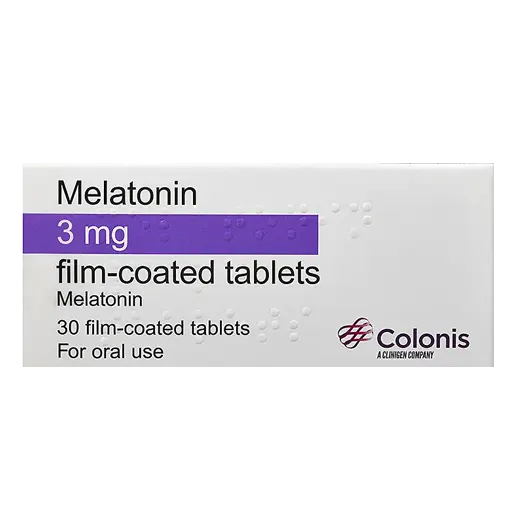jet lag consultation
Please fill in the questionnaire below. Any information provided will be kept confidential and will only be seen by a prescriber. These questions are designed to give our prescriber enough information to make a decision on whether the treatment is suitable, please fill them in truthfully.
jet lag
Jet lag is your body's reaction to quickly travelling to places in different time zones. Your internal body clock, which controls when you're awake and asleep, gets out of sync with the normal day-night routine of the new location. As you go through different time zones, your body needs some time to get used to the new schedule, which can lead to feeling tired, cranky, and experiencing other symptoms.
-
POM
Jet Lag
Jet lag is a temporary sleep disorder that occurs when you travel across multiple time zones. It happens because your internal body clock (circadian rhythm) is out of sync with the local time at your destination.
It's most common when travelling east or west across three or more time zones, and symptoms can last for several days depending on the distance travelled and your personal sensitivity to time changes.
While jet lag isn't dangerous, it can affect your sleep, energy, focus, and overall enjoyment of your trip.
What causes jet lag?
Your body runs on a 24-hour internal clock that controls your sleep-wake cycle, hormone release, digestion, and body temperature. When you rapidly change time zones, your body stays on your “home” schedule, leading to a mismatch with the local time.
Factors that influence jet lag include:
- Number of time zones crossed: The more time zones you travel through, the worse jet lag can be
- Direction of travel: Travelling east (e.g. UK to Asia) tends to cause more severe symptoms than travelling west (e.g. UK to the US)
- Age: Older adults may experience more severe or longer-lasting symptoms
- Sleep habits before travel: Poor sleep beforehand can make symptoms worse
- Flight schedule: Overnight flights or early arrivals can make adjustment harder
What are the symptoms of jet lag?
Symptoms can vary from person to person and usually appear within a day or two of travelling. Common symptoms include:
- Difficulty falling asleep at night
- Waking up too early or feeling sleepy during the day
- Fatigue or low energy
- Difficulty concentrating or brain fog
- Digestive issues (e.g. constipation, bloating)
- Mood changes or irritability
- General feeling of being unwell
Jet lag usually improves within a few days as your body adjusts to the new time zone.
How is jet lag managed?
Jet lag doesn't require medical treatment in most cases, but there are several ways to reduce its impact and help your body adjust more quickly.
Before you travel
- Gradually adjust your sleep schedule a few days before departure — sleep earlier if travelling east, later if heading west
- Get good sleep in the days leading up to your trip
- Avoid alcohol and caffeine the night before travelling
During your flight
- Stay hydrated — drink water regularly
- Avoid alcohol and caffeine, which can disrupt sleep and dehydrate you
- Try to rest or sleep in line with your destination's time zone
- Walk around and stretch your legs during long flights
After arrival
- Spend time in natural daylight as soon as possible — this helps reset your body clock
- Try to stay awake until a reasonable local bedtime, even if you're tired
- Eat meals at local times to help your body adjust
- Avoid naps longer than 20-30 minutes in the first couple of days
Jet lag treatments
While jet lag usually resolves on its own, some treatments may help shorten its duration or ease symptoms.
Melatonin supplements
- Melatonin is a hormone that helps regulate sleep-wake cycles
- Taking melatonin in the evening at your destination can help your body adjust
Sleep aids
- Short-term use of mild sleep aids (e.g. diphenhydramine or doxylamine) may help you fall asleep, but are not recommended long-term
- Only use under the guidance of a doctor or pharmacist, especially if taking other medications
Light therapy
- Involves using a special light box to help reset your circadian rhythm
- Most helpful for frequent travellers or those with severe jet lag
Will treatment work?
Most people recover from jet lag within a few days without the need for medication. Melatonin and light exposure can help your body adjust faster, especially when combined with good sleep habits and a gradual return to routine.
Planning ahead and adjusting your schedule before travel are the most effective ways to reduce the severity of jet lag.
Jet lag treatment side effects
Treatments for jet lag are generally safe when used short term, but they may cause mild side effects:
- Melatonin: Drowsiness, vivid dreams, or grogginess the next morning
- Over-the-counter sleep aids: Dry mouth, drowsiness, or grogginess — not suitable for regular use
- Light therapy: Can cause headache, nausea, or eye strain if overused
Always check with a pharmacist or GP before using sleep aids or supplements, especially if you have underlying health conditions or are taking other medications.
